Have you ever left a snack sitting out on a counter or table and come back to find it mysteriously….missing?
Sometimes, the canine culprit and the missing snack are not especially worrisome. For instance, perhaps your pup swiped the other half of your PB&J or your grilled turkey burger.
But then again, sometimes the missing snack and that guilty look on your dog’s face can cause a lot of anxiety!
What if your dog ate pistachios, for example? Is this okay? Can dogs eat pistachios safely? Are pistachios healthy for dogs? Or do you need to call your canine veterinarian to make an urgent visit?
In this article, we take a close look at the topic of whether dogs can eat pistachios so you know what the experts have to say on this topic.
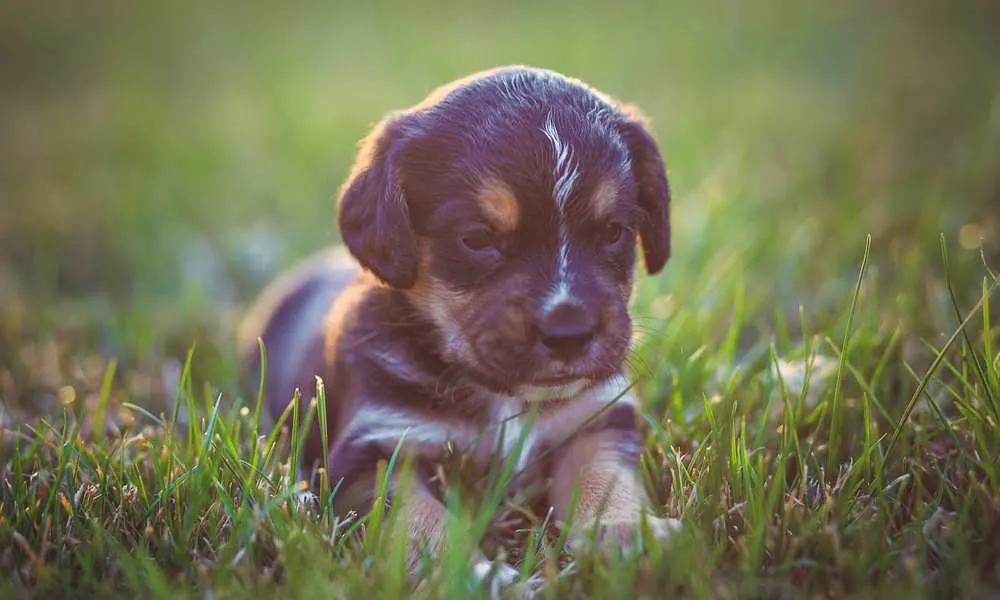
Should Dogs Eat Pistachios?
As all dog owners know, the answer to the question “can dogs eat pistachios” is an easy “yes.”
Of course, they can! And most dogs will if given half a chance. But should dogs eat pistachios? The answer here is less simple and clear.
In general, very small quantities of nuts are safe for dogs to eat. However, there is more you need to know about this topic.
1. The Quantity Of Pistachio Nuts Offered Should Be Relative To The Size Of Your Dog
A “small quantity” for a Great Dane will and should look very different than a small quantity for a chihuahua. So for a Great Dane, three or four nuts may be a small quantity. For a chihuahua, half a pistachio nut may be a small quantity.
2. Eating Pistachios May Be Safe, But Eating Nut Shells And Hulls Is Not Safe
Nut hulls and shells, like the hard outer shell that surrounds the pistachio nut, can cause internal abrasions, perforations, and obstructions. The shells are hard to digest and can be impossible to pass, especially for very small dogs.
3. Salted, Seasoned Or Sweet Pistachio Nuts Are Not Safe For Your Dog To Eat
Salted, seasoned, and sweetened nuts sure are delicious, no matter what species you are! But dogs are not used to extra flavorings, salt, or sweetener. And some of the seasonings used, like garlic or onion or (worst of all) the artificial sweetener xylitol, may be toxic or even deadly to your dog.
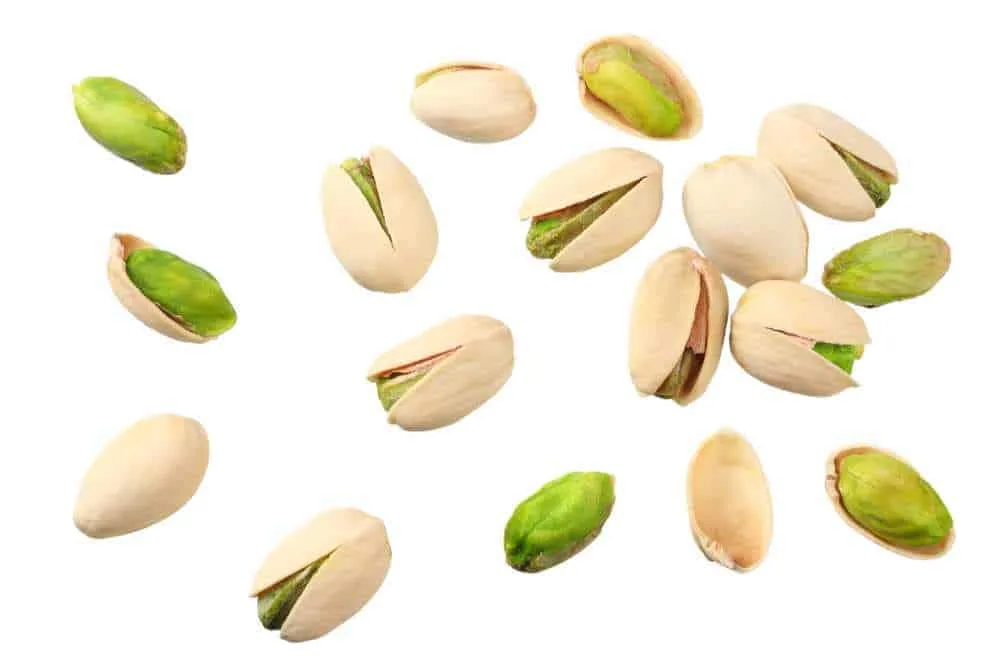
Are Pistachios Healthy For Dogs?
As the American Kennel Club (AKC) points out, nuts, in general, are very high in fat.
Fat is one of the nutrients your dog needs to consume but in moderation. If you are feeding your pooch a complete and balanced commercial dog food, this food should already contain all of the daily nutrients in the proper balance your dog needs.
This doesn’t mean you can’t occasionally slip your dog a high-fat treat. But are pistachios the best treat to offer when you do this?
The answer here is “no.” There are definitely other nuts and seeds that are better. PetMD states that peanuts, almonds, and cashews should be your go-to for occasional nut treats.
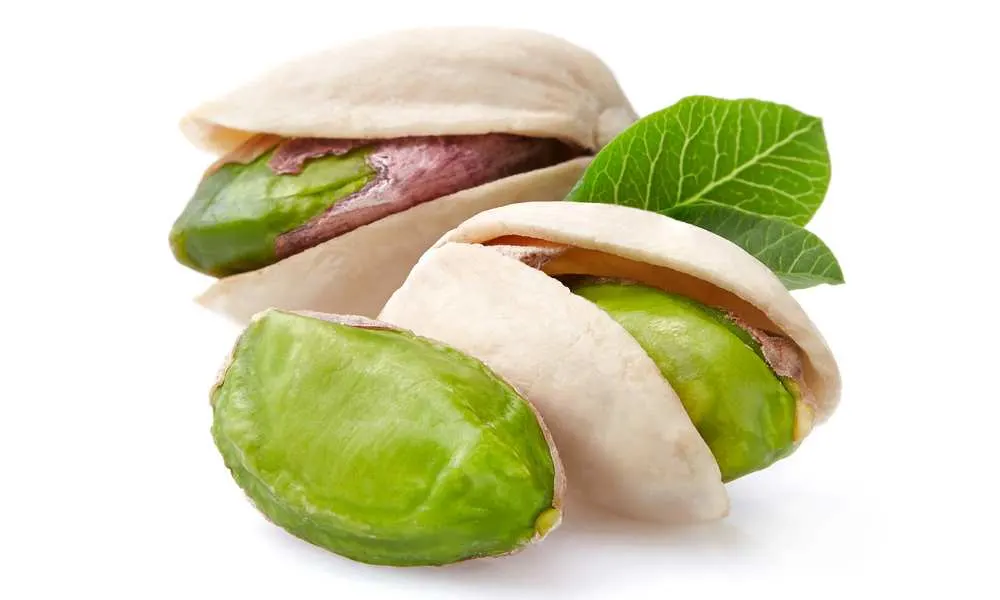
Are Pistachios Dangerous To Dogs?
Let’s say you are expecting guests. You put out some plain unsalted shelled pistachios in a little decorative bowl.
A half-hour before your guests are due to arrive, you make one final pass to check everything and notice the bowl is empty.
Since you and your dog are the only ones home and you know you didn’t eat all those pistachios, that leaves only one other suspect.
Should you panic?
You don’t need to panic, says VPI pet insurance. Or at least, you don’t need to panic if your dog seems to be acting normally and isn’t in any obvious distress.
But you do need to watch your pup very carefully over the next several hours. Watch for any signs of digestive disturbance like nausea, vomiting, diarrhea, constipation, bloating, or gas.
If you see your dog lay down on the floor with the tail in the air, or if you witness lethargy, fever, or clear signs of abdominal pain, call the nearest veterinary urgent care right away. Your dog could have pancreatitis, says VCA Animal Hospitals.
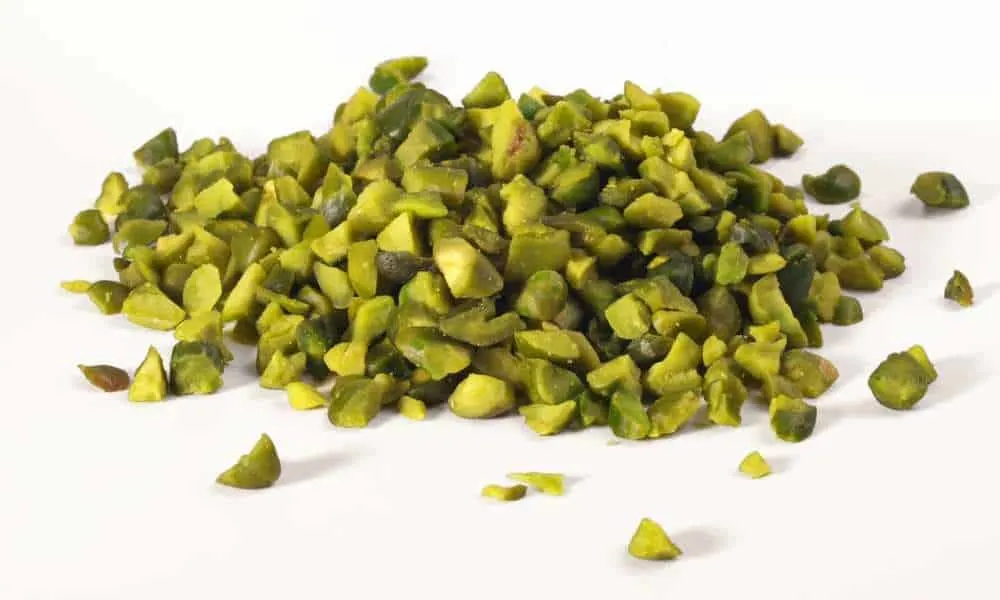
What Is Pistachio Poisoning In Dogs?
While you may have heard that old peanuts can be toxic to dogs, you may not yet know there is such a thing as “pistachio poisoning.”
While it is not likely to happen if your dog just eats one or two pistachios, eating a whole bowl of pistachios could potentially induce pistachio poisoning.
As with peanuts, the issue is typical with old pistachios.
Old nuts that are past their prime can become moldy. The type of mold that tends to grow on nuts, aspergillus mold, creates a toxin called aflatoxin.
The most commonly reported symptoms of canine pistachio poisoning include these:
- Jaundice (yellowed tongue, gums, and eyes).
- Lethargy.
- Vomiting.
- Confusion.
- Increased urination.
- Increased need to drink water.
- Confusion and instability.
- Appetite loss.
If you even suspect that your dog has developed pistachio poisoning, absolutely do not wait to seek treatment. Your veterinarian or the nearest canine urgent care clinic can do tests to identify the cause of symptoms and prescribe immediate treatment.
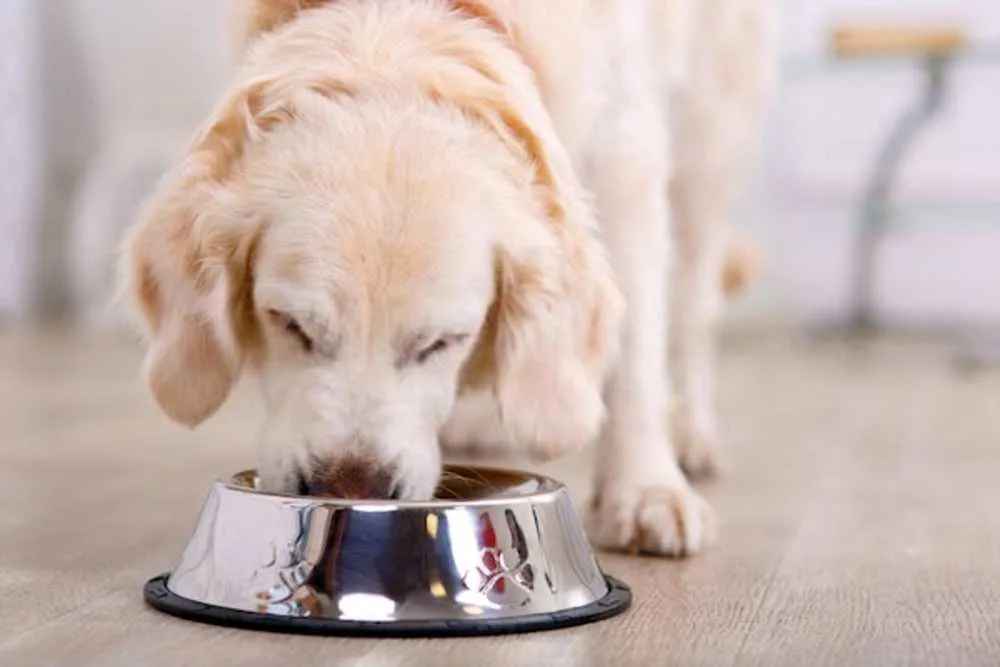
Do Pistachios Have Any Good Nutrients For Dogs?
As we mentioned earlier here, pistachios are not generally the first choice of nut treats for dogs. They are too high in fat and potentially too moldy to be considered truly “healthy” for your pup.
But if your dog does eat pistachio or few, is it possible they will get any good nutrients from these nuts?
Here, there is happy news – pistachios do have some notable health benefits according to Animal Wellness Magazine.
- Vitamin B1 (thiamin): Vitamin B1 is important to help your dog maintain a healthy brain and body and healthy organs.
- Vitamin B6: Vitamin B6 is important for muscle tone, red blood cell production, and a healthy heart.
- Vitamin E: Vitamin E is a natural anti-inflammatory with both heart and joint benefits.
- Vitamin K: Vitamin K is vital for proper blood clotting.
- Copper: Copper is important to help develop connective tissues, regulate melanin (pigment) production, and prevent oxidative cell damage.
- Phosphorus: Phosphorus is an important mineral to support kidney function.
- Manganese: Bone and nerve health is linked to manganese.
- Iron: Iron is linked to energy levels and metabolism as well as healthy blood.
- Calcium: Calcium is vital to creating healthy bones and teeth.
- Zinc: Zinc is an important component for proper wound healing and immune system function.
- Selenium: Selenium works together with Vitamin E to help promote healthy muscles and joints.
- Folate (folic acid): Folate and folic acid are linked to proper cell formation and maintenance. They are also important for the proper metabolism of amino acids.
So now you know there is potentially a bright light at the end of your long worry tunnel when you discover your dog just snarfed up some pistachios.
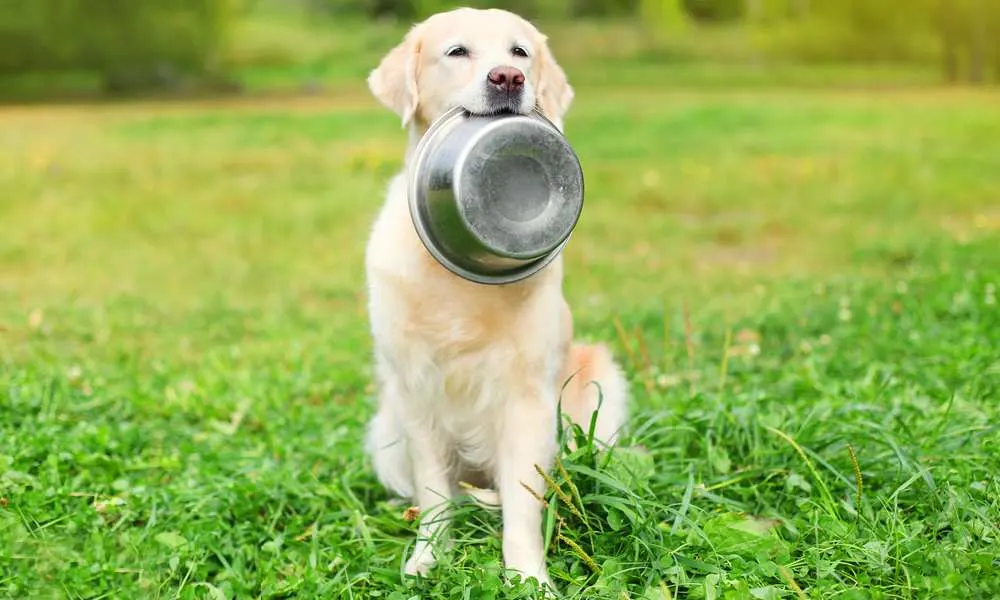
What Should You Do If Your Dog Eats Pistachios?
The first thing you will want to do if you discover your dog has eaten pistachios is to assess the risk level.
If the nuts your dog ate were unshelled, fresh plain, and in a very small quantity (relative to your dog’s size and weight), the risk level is potentially lower.
But for some dogs with food allergies or sensitive stomach issues, even one pistachio may cause problems. Pistachios are not commonly linked to canine allergies but they can happen.
If your dog ate seasoned or flavored or salty pistachios, shelled pistachios, or old pistachios, or if the quantity was large, you should call your veterinarian or urgent care veterinary clinic to ask for guidance.
When in doubt or if you have any worries at all, it is far better to just bring your dog to the veterinarian or urgent care center to be checked than to wait and risk dangerous side effects developing later when it may be harder to get seen right away.
Pistachios are certainly not the worst “people food” your dog could eat. But they are also not the best. Better snack foods certainly exist.
Learn More: What Can Dogs Eat? A Comprehensive List Of Dog-safe Foods

